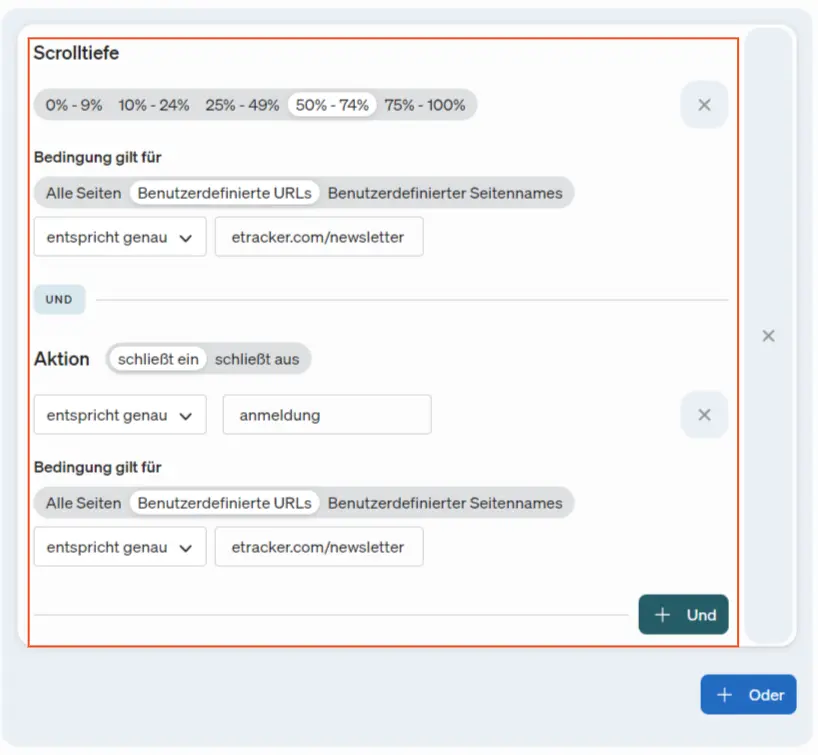october
October 29, 2024
New triggers
The triggers for tags from etracker and third-party providers have been expanded to include:
- Time per page: Conversion or remarketing tags, for example, can be fired after a certain dwell time.
- Scroll depth: Analogous to the dwell time, the scroll depth can also be used as a signal for higher engagement.
- History Change: Helpful for single-page applications to generate virtual page views when the URL hash of the page or the browser history changes.
- etracker events: In particular, automatic events such as downloads or video views are now also available for third-party tags.
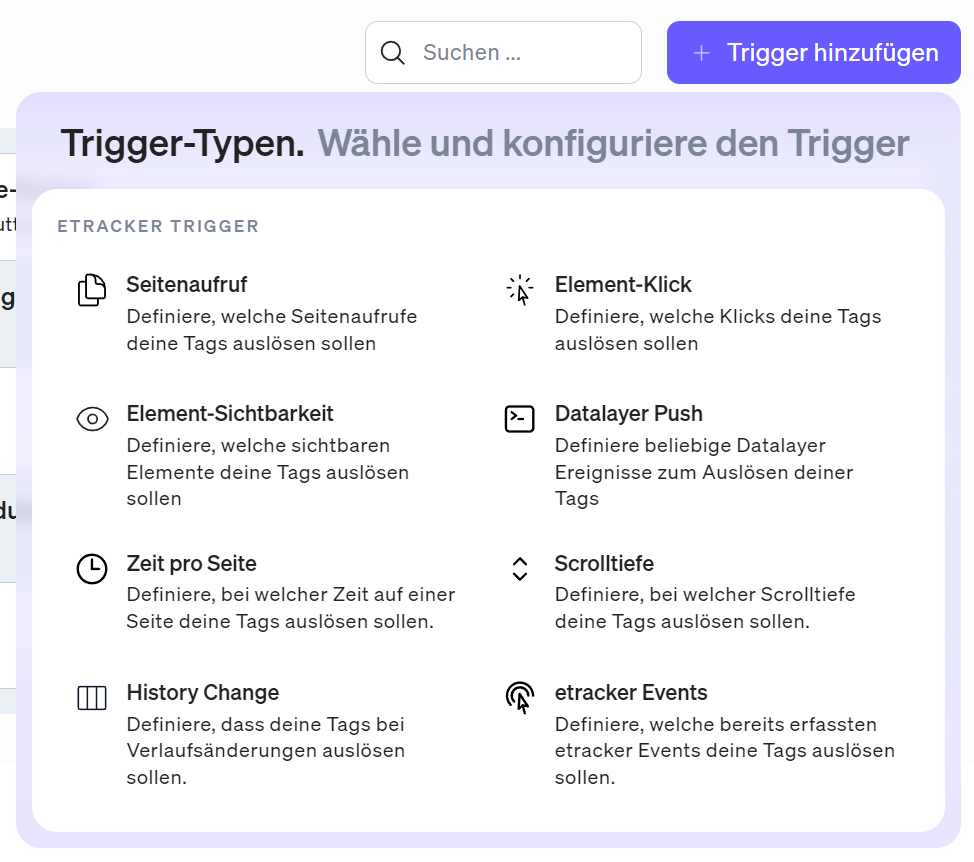
October 22, 2024
Triggers added to overview page
The triggers for the created tags are now also displayed on the Tag Manager overview page
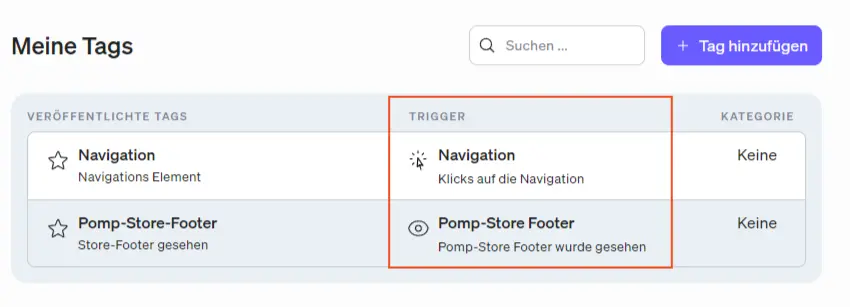
Extension of the debug mode
The debug mode has been extended:
- Tags in draft status are now also triggered.
- The triggers for the triggered tags are now displayed.
- The language can be switched between German and English.
- The variables are displayed with the name created instead of the ID.
New “DataLayer Push” trigger
The Datalayer Push trigger can now be selected for a tag in the Tag Manager. Tags can be triggered here if certain events are present in the data layer. The tags are then triggered when the corresponding event is pushed into the data layer.
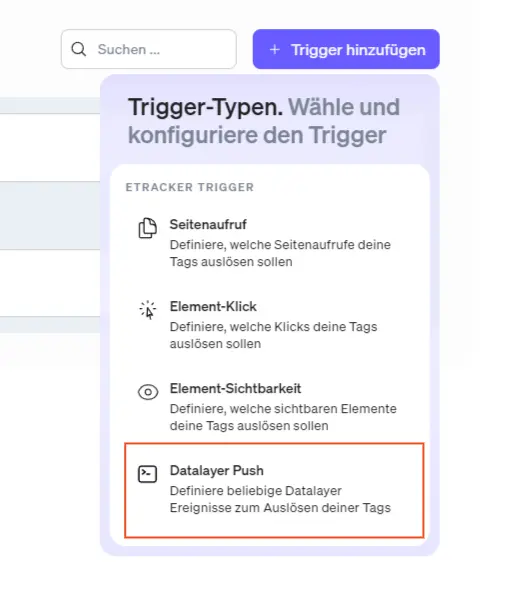
CNAME check when creating a Let’s encrypt certificate
When configuring Let’s encrypt certificates for tracking via your own domain, we have implemented a check that verifies whether the CNAME entered has been set up.

Segments: Visitor scope
A distinction can now be made in the segments as to whether the segment applies to visits or visitors, as before. This means that segments can also include several sessions of the same visitor.
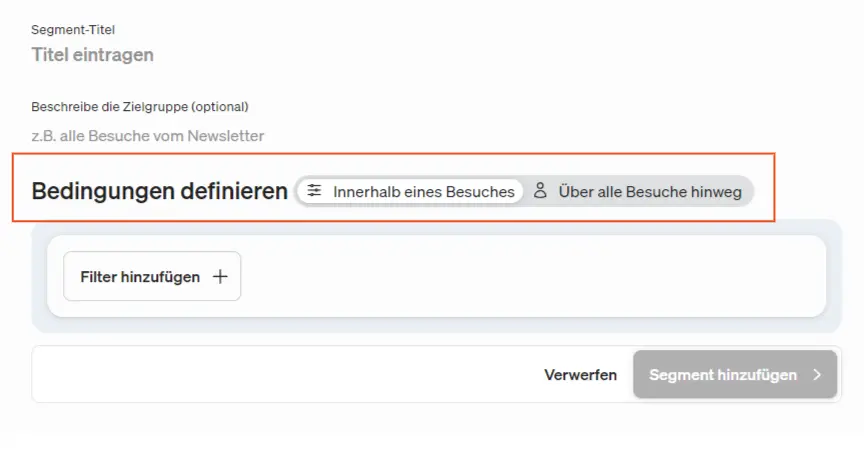
Segments: Nested conditions
When creating segments, a restriction to a URL or a page name can now be made for the dimensions type, action, category, object and scroll depth. The same applies to the key figures dwell time, page impressions and views.
